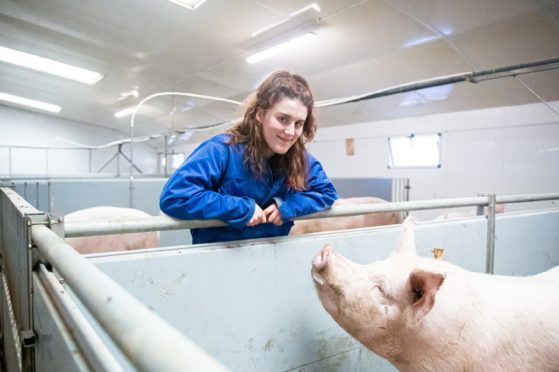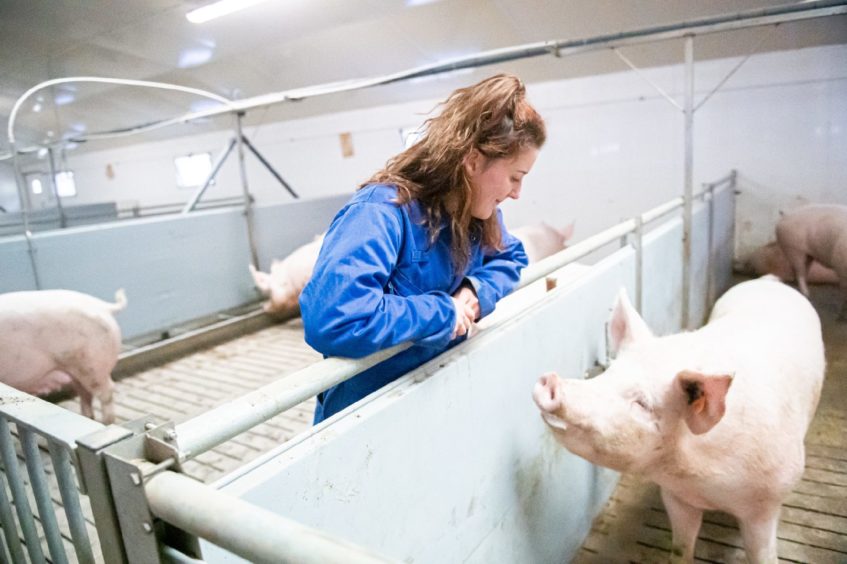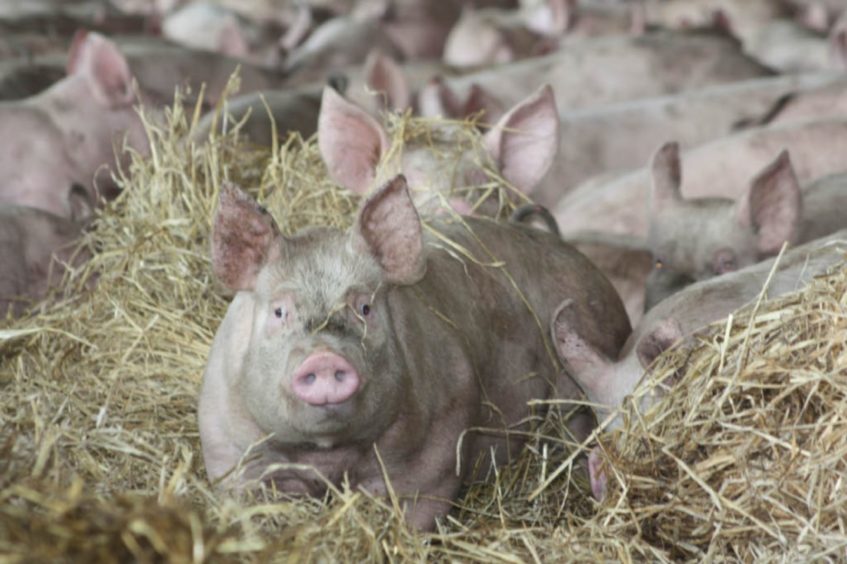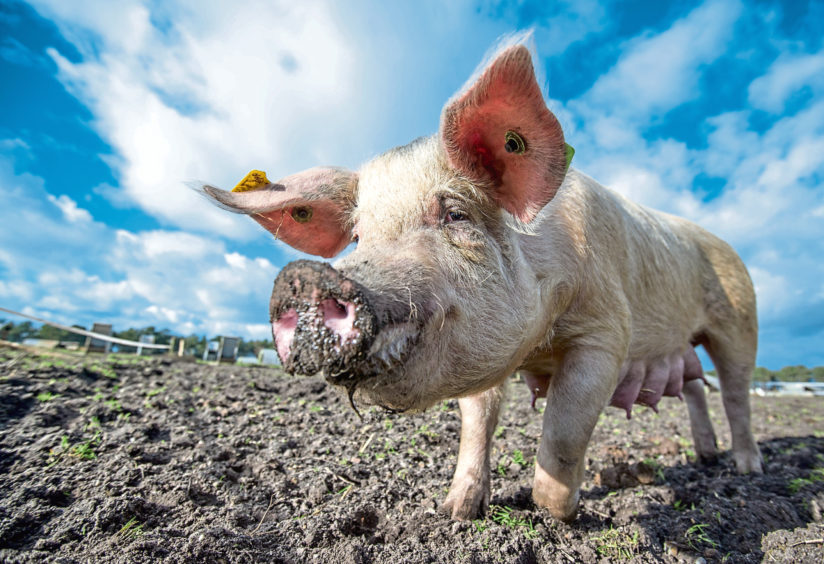The Scottish pig industry is a highly specialised niche sector whereby most of the pig population are located in the north-east of Scotland.
Pig farming consists of indoor and outdoor farms, and both must have very high standards.
Quality Meat Scotland (QMS) runs an assurance scheme, which sets out standards that all producers must abide by.
The highest welfare standards are paramount for not only the pigs but also the producers and consumers.
Recently pig welfare standards have come into the public domain and our reputation has been dented, therefore it’s very important that these standards are rigorously maintained.
Abiding by assurance scheme welfare standards allows the consumer to be happy knowing that the pigs are being looked after.
Standards include ensuring there are sufficient competent stockpersons to manage pig health and welfare, who must be trained for all the tasks they undertake, as well as ensuring all pigs have permanent access to suitable and sufficient enrichment materials.
Personally, it’s of utmost importance that every pig on the farm is always happy and content and I strive to make their lives as good as possible. This is easily managed by providing extra toys, which are classed as enrichment.
Not many people understand how intelligent this species is and how a simple toy helps stimulate their brains, keeping them from boredom which ultimately can result in tail biting and ear necrosis.
By allowing a pig to thrive it means at the end of the day you will have not only have a happy pig but also a good quality product for consumers.
Every day all pigs must be checked thoroughly to ensure there are no health issues such as lameness, skin conditions including erysipelas and greasy pig, respiratory issues including pneumonia, and general condition so feed intake can be adjusted if necessary.
Feed is a huge part of the pig’s life and it’s essential their diet is specially selected for each stage.
As per QMS standards all feedstuffs must be good quality and diets must conform to nationally recognised nutrient levels.
Pigs are notoriously renowned for being smelly, dirty animals but this is far from the case.
Despite liking a roll in mud to cool off, they are very clean animals in terms of creating separate dunging areas from their resting areas.
As producers we must abide by the rule of providing clean and hygienic areas which I feel is very important as it’s nice to see pigs in a clean pen. This all helps to reduce disease issues.
Undoubtedly there are a lot of ways the pig industry can move forward in terms of welfare such as the introduction of freedom farrowing.
This is where a sow can initially be in a crate and then let out when deemed safe for the piglets and stockpersons in more of a pen-type system.
This would be a huge step forward especially in the public’s eye as this will look better than the conventional systems.
Furthermore, in the light of recent negative publicity it’s important that all staff move pigs efficiently and effectively, not only to safeguard the employee but also to ensure the pig is kept calm, stress-free and safe from injury.
This is now something that’s being brought to the industry’s attention and courses are now going to be implemented especially on the Red Tractor Assurance Scheme where staff must undergo these and get certification.
As an industry it’s very important to continue to enhance the welfare standards in the UK, to maintain our reputation.
Just because things have been done a certain way for numerous years, doesn’t mean this is the way to continue so we all must adapt to changes and welcome them.
Finally, I’d like to conclude with it doesn’t matter how big the problem is, it’s how we team together and face it.



